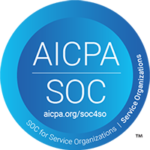
You probably didn’t know that May is Mental Health Awareness Month, or that it’s been observed in the United States since 1949. After 71 years, our society is still figuring out how to talk openly and honestly about mental health.
But it seems younger generations are more comfortable with the topic and accepting of those who depend on treatment and therapy for better mental health. Maybe that’s due to coming of age after the introduction of Prozac in 1988.
Since then, the rate of antidepressant use among Americans has increased nearly 400%, according to the National Center for Health Statistics. More than one in five adults—including one in 20 children and adolescents—take a psychiatric drug every day.
Indeed, behavioral health medications account for 10% of the roughly 29,000 products in our clinical suggestions engine; 13% of all members who have ever acted on a Savings Alert did so for mental health medications.
One of them is a 32-year-old member with bipolar disorder. In March, she filled a brand bipolar medication that cost her $448 for a 30-day supply, with a plan cost of $1,344 each fill. Then this happened:
- We sent her multiple Savings Notifications for the claim and she logged into her member portal in April.
- Waiting on her dashboard was a Savings Alert that suggested a clinical alternative for the drug. Member cost: $5. Plan cost: $0.18!
- She clicked “Contact My Prescriber“ to initiate doctor approval for the alternative. The request was granted, and the new script was ready by her next fill.
This simple course of action resulted in annualized savings of $5,315 for the member and $16,124 for her employer plan. For those counting at home, that’s over $21,000 saved in fewer than five mouse clicks (or phone taps).
Our esteemed colleague Jeff Green, PharmD, Director of Pharmacy, says the mental health medication landscape can be trickier to navigate for cost-savings compared to that for conditions like high blood pressure or cholesterol.
“Measuring drug efficacy is more subjective because mental health is evaluated that way. There’s so much variance in how a person’s brain chemistry responds and reacts to any given medication,” he says. “Pharma knows this, so new products come into and out of vogue all the time. That said, there will always be many options.”
And options usually translate to savings opportunities. Not every member can change medications, but perhaps the same drug is much cheaper in a tablet vs. a capsule, or vice versa.
It’s a matter of mapping the right alternatives to a patient’s current therapy and ensuring their doctor agrees. That’s exactly what our solution does. Not just during Mental Health Awareness Month. Every month.



